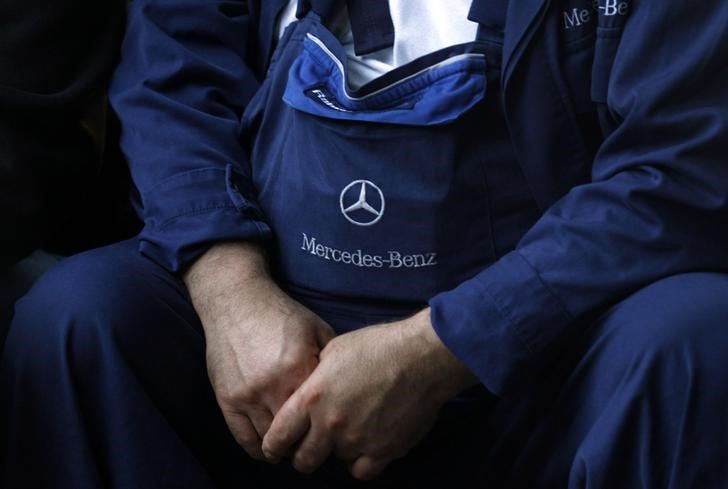On Friday, an analyst from Bernstein highlighted the formidable challenges that European automakers are currently facing, particularly due to the rapid shift towards electric vehicle (EV) technology.
The industry is experiencing a "perfect storm" of difficulties, which includes the volatile demand for electric vehicles and the competitive edge that mainly Chinese brands and Tesla (NASDAQ:TSLA) have gained. According to InvestingPro data, this challenging environment has significantly impacted major players like Stellantis, whose stock has declined nearly 40% over the past six months.
The analysis pointed out that European Battery Electric Vehicle (BEV) penetration is expected to reach approximately 51% by 2030, which is a slight adjustment from previous forecasts. This new estimate aligns Bernstein's predictions more closely with those of S&P Global Mobility, which, as of last month, projected a 49% penetration rate, down from the 62% it had anticipated in March 2024.
The report further suggests that flexibility will be key for manufacturers to overcome these challenges. Bernstein identifies BMW (ETR:BMWG) and Renault (EPA:RENA) as companies that demonstrate this adaptability, both maintaining an Outperform (OP) rating.
Conversely, Stellantis, which has a broad range of BEV launches, has encountered issues that are reflected in its recent BEV introductions, such as the Citroën eC3's missteps in Europe and delays in the U.S., resulting in a Market Perform (MP) rating.
Despite these challenges, InvestingPro analysis shows Stellantis trading at an attractive P/E ratio of 2.87 and offering a substantial 9.17% dividend yield. InvestingPro's Fair Value analysis suggests the stock may be undervalued at current levels.
Mercedes, after underwhelming BEV performance, is considered to be in "show me" territory, indicating that the company needs to demonstrate its capability in the BEV market. This sentiment is also shared for the VW Group and Porsche (ETR:P911_p), both of which are also rated as Market Perform (MP) by Bernstein.
These ratings suggest a cautious outlook on their ability to manage the transition to electrification amidst the industry's current challenges. For deeper insights into automotive sector valuations and comprehensive analysis of over 1,400 stocks, including detailed Pro Research Reports, visit InvestingPro.
In other recent news, Stellantis NV (NYSE:STLA) has been navigating significant shifts in leadership and financial performance. The sudden resignation of CEO Carlos Tavares has led to an interim committee, headed by Chairman John Elkann, temporarily overseeing the company's activities.
Despite the leadership change, Stellantis reaffirmed its financial guidance for fiscal year 2024, which includes an adjusted operating income margin between 5.5% and 7.0%. The company also anticipates industrial free cash flow to range between a negative €5 billion and €10 billion.
Analysts have been closely following these developments. HSBC confirmed a Hold rating for Stellantis, while Evercore ISI rated the company "In Line" with a price target of €13.00. Bernstein SocGen Group also reiterated a Market Perform rating.
Stellantis is also facing potential tariffs proposed by the former U.S. administration, which, according to S&P Global, could cost carmakers up to 17% of their combined annual EBITDA.
To improve profitability and market adaptability, Stellantis has outlined a multi-year product transition and announced a collaboration with Infineon Technologies AG (OTC:IFNNY) to enhance power conversion and distribution in electric vehicles. These are among the recent developments that have emerged, focusing on the automotive giant's financial performance and strategic partnerships.
This article was generated with the support of AI and reviewed by an editor. For more information see our T&C.
